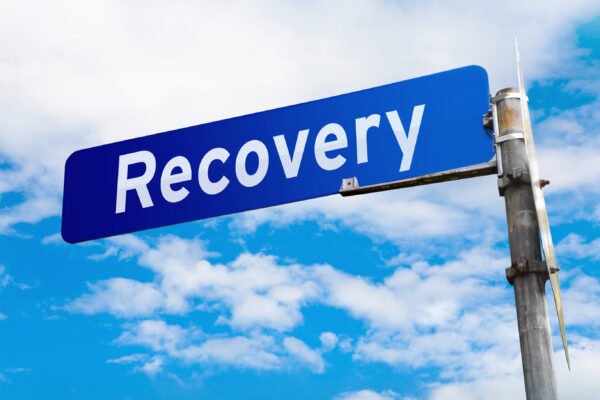
Addiction counselling plays a pivotal role in the recovery process, providing individuals with the support and guidance needed to overcome substance abuse. By addressing the root causes of addiction and developing healthy coping mechanisms, addiction counselling offers numerous benefits that can lead to lasting sobriety and improved well-being. In this article, we will explore the five key benefits of addiction counselling and how they contribute to the lifelong journey of recovery.
Understanding Addiction Counselling
Before delving into the benefits, it is important to understand what addiction counselling entails. Addiction counselling is a therapeutic approach that aims to help individuals understand and overcome their addiction to cocaine. It involves working closely with addiction counsellors, who are trained professionals with expertise in addiction recovery. Additionally, screening for cocaine in urine is often a part of the process to monitor progress and ensure accountability. People who are in need of addiction counselling and treatment may visits sites like www.cocaineaddictionhelp.co.uk.
But what exactly does addiction counselling look like? Let’s dive deeper into the role of addiction counsellors and the process involved.
The Role of Addiction Counsellors
One of the primary benefits of addiction counselling is the individualized support provided by addiction counsellors. Professionals from rehab centers like Sober Living Los Angeles play a vital role in helping individuals navigate the challenges of addiction and develop effective strategies for recovery. Addiction counsellors offer guidance, encouragement, and non-judgmental support throughout the entire counselling process.
They are trained to create a safe and confidential space where individuals can openly discuss their struggles, fears, and aspirations. By building a strong therapeutic alliance, addiction counsellors establish a foundation of trust, which is crucial for effective counselling. They listen attentively, ask thought-provoking questions, and provide valuable insights to help individuals gain a deeper understanding of their addiction.
Furthermore, addiction counsellors are well-versed in various therapeutic techniques and interventions. They utilize evidence-based approaches tailored to each individual’s unique needs. This personalized approach allows addiction counsellors to address the specific challenges and underlying issues that contribute to addiction. In the journey to overcome addiction, seeking assistance from a substance abuse interventionist is often a crucial step towards recovery.
The Process of Addiction Counselling
Attending addiction counselling sessions typically involves a step-by-step process. Initially, the counsellor conducts an initial assessment to understand the individual’s unique circumstances and develop a personalized treatment plan. This plan may include various therapeutic approaches such as cognitive-behavioral therapy, individual counselling, group therapy, and family therapy.
During the assessment phase, addiction counsellors gather information about the individual’s substance use history, mental health, social support system, and any co-occurring disorders. This comprehensive evaluation helps them gain a holistic understanding of the individual’s needs and challenges.
Once the treatment plan is established, addiction counsellors guide individuals through the therapeutic process. They provide education about addiction, its effects on the brain and body, and the potential risks associated with continued substance use. Through psychoeducation, individuals gain valuable knowledge that empowers them to make informed decisions about their recovery. Providers of Los Angeles Evening IOP may also help those who are unable to leave their jobs and other commitments for in-patient rehab services.
Throughout the counselling process, individuals work with their counsellors to identify triggers, develop coping mechanisms, and address underlying issues that contribute to addiction. By providing a safe and supportive environment, addiction counselling helps individuals explore their thoughts and feelings, facilitating personal growth and self-discovery.
Overall, addiction counselling is a collaborative journey between the individual and their counsellor. It is a process that requires commitment, dedication, and a willingness to explore the depths of one’s addiction in order to achieve lasting recovery.
Benefit 1: Improved Self-Awareness
One of the significant benefits of addiction counselling is the enhancement of self-awareness. Often, individuals struggling with addiction are unaware of the deeper issues driving their substance abuse. Through addiction counselling, individuals can gain insight into their behaviours, emotions, and motivations.
The Importance of Self-Awareness in Recovery
Self-awareness is essential for lasting recovery. By understanding the underlying factors contributing to addiction, individuals can develop strategies to overcome cravings, temptations, and triggers. Additionally, self-awareness enables individuals to recognize harmful patterns and make healthier choices in their daily lives.
Benefit 2: Development of Healthy Coping Mechanisms
Another crucial benefit of addiction counselling is the development of healthy coping mechanisms. Substance abuse often serves as a means of escape or self-medication. Addiction counselling helps individuals identify healthier alternatives to manage stress, anxiety, and other emotions without relying on addictive substances.
The Role of Coping Mechanisms in Addiction Recovery
Coping mechanisms are essential tools for maintaining sobriety in the face of challenges and temptation. Addiction counsellors work with individuals to identify their triggers and develop effective coping strategies, such as exercise, mindfulness, journaling, or engaging in creative activities. These healthy coping mechanisms provide individuals with healthier outlets for their emotions and reduce the risk of relapse.
Benefit 3: Enhanced Communication Skills
Addiction often damages relationships and erodes communication. Addiction counselling plays a crucial role in restoring and enhancing communication skills, both with oneself and with others.
The Connection Between Communication and Recovery
Effective communication is essential for repairing damaged relationships and establishing healthy support systems. Addiction counsellors help individuals learn to express their emotions, set boundaries, and practice active listening. By improving communication skills, individuals can rebuild trust, strengthen relationships, and cultivate new connections that support long-term recovery.
Benefit 4: Restoration of Personal Relationships
Substance abuse can strain personal relationships, leading to broken trust, misunderstandings, and emotional distance. Addiction counselling provides individuals with a platform to address these issues and work towards restoring their personal relationships.
How Counselling Helps Rebuild Relationships
Through addiction counselling, individuals can heal strained relationships by taking responsibility for their actions, seeking forgiveness, and developing healthy communication patterns. Counsellors assist in identifying the necessary steps to rebuild trust and offer guidance on navigating the challenges that may arise during this process. By repairing and enhancing personal relationships, individuals in recovery gain a strong support system that promotes lasting sobriety.
Benefit 5: Long-Term Sobriety and Relapse Prevention
Perhaps the most critical benefit of addiction counselling is its role in promoting long-term sobriety and preventing relapse. Addiction counsellors provide ongoing support and education, equipping individuals with the tools needed to navigate the complexities of recovery.
The Role of Counselling in Maintaining Sobriety
By attending regular counselling sessions, individuals can stay accountable to their recovery goals, learn strategies to prevent relapse and address any challenges or setbacks that may arise. Counsellors also provide resources and referrals to additional support networks, such as support groups or aftercare programs. This continued support significantly increases the likelihood of maintaining sobriety and achieving long-term recovery success.
In concussion addiction counselling offers a multitude of benefits that have a profound and lasting impact on individuals’ lives. Through enhanced self-awareness, the development of healthy coping mechanisms, enhanced communication skills, the restoration of personal relationships, and the promotion of long-term sobriety, addiction counselling empowers individuals to reclaim their lives and create a foundation for lasting recovery. The ongoing journey of recovery requires commitment, resilience, and continued support, and addiction counselling plays a critical role in guiding individuals along this lifelong path of healing and growth.
Written by Luke Worsfold

This article was written by addiction therapist Luke Worsfold who carries a legacy of battling personal addiction and overcoming the challenges of growing up with an addict mother. With 7 years plus in recovery and therapy, coupled with 3000+ hours of counselling others, Luke’s journey and professional experience offer a unique and credible perspective.
